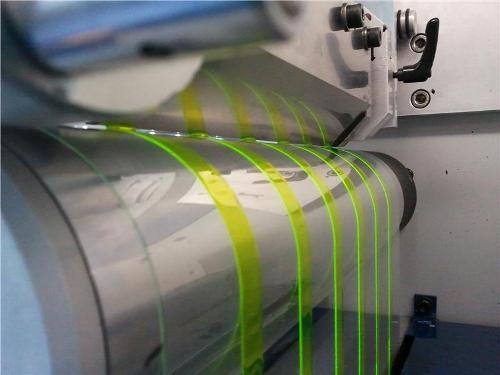Utilizing a roll-to-roll compatible process, Andreas Sandström and Ludvig Edman, researchers at Umeå University, have created organic light-emitting electrochemical cells (LECs) under ambient conditions.

Deposition on printing press
The researchers have described their LECs in the Nature Communications journal. Professor Edman’s team at Umeå University is involved in the development of LECs utilizing innovative organic materials such as graphene and light-conducting and emitting polymers. The scientists have substantially enhanced the operating life and energy efficiency of LECs and elucidated their working principles. They have recently improved the performance of LECs to a level suitable for signage applications.
The researchers used solely air-stable materials in a roll-coater equipment for the deposition of a PEDOT-PSS anode and a light-emitting layer over a flexible cathode-coated substrate placed on roll with the help of a slot-die head. The layers in the resulting LEC device were highly uneven and the thickness of both the anode and the active layer was roughly 1 µm. Nevertheless, the LEC’s innovative self-doping operation enabled a uniform light emission. This feature is suitable for roll-to-roll processes because it is possible to relax the requirements of the coating quality, which in turn lowers the costs considerably.
The LEC technology can be utilized to fabricate large-area light emitting devices at a lower cost under ambient conditions because all the steps involved, which include ink preparation, the subsequent constituent layer coating and the final device operation, can be carried out under ambient air.
Henrik Dam and Frederik Krebs, researchers at the Technical University of Denmark, contributed to the work. The researchers’ next step is to make the production costs feasible for commercial applications.
Disclaimer: The views expressed here are those of the author expressed in their private capacity and do not necessarily represent the views of AZoM.com Limited T/A AZoNetwork the owner and operator of this website. This disclaimer forms part of the Terms and conditions of use of this website.